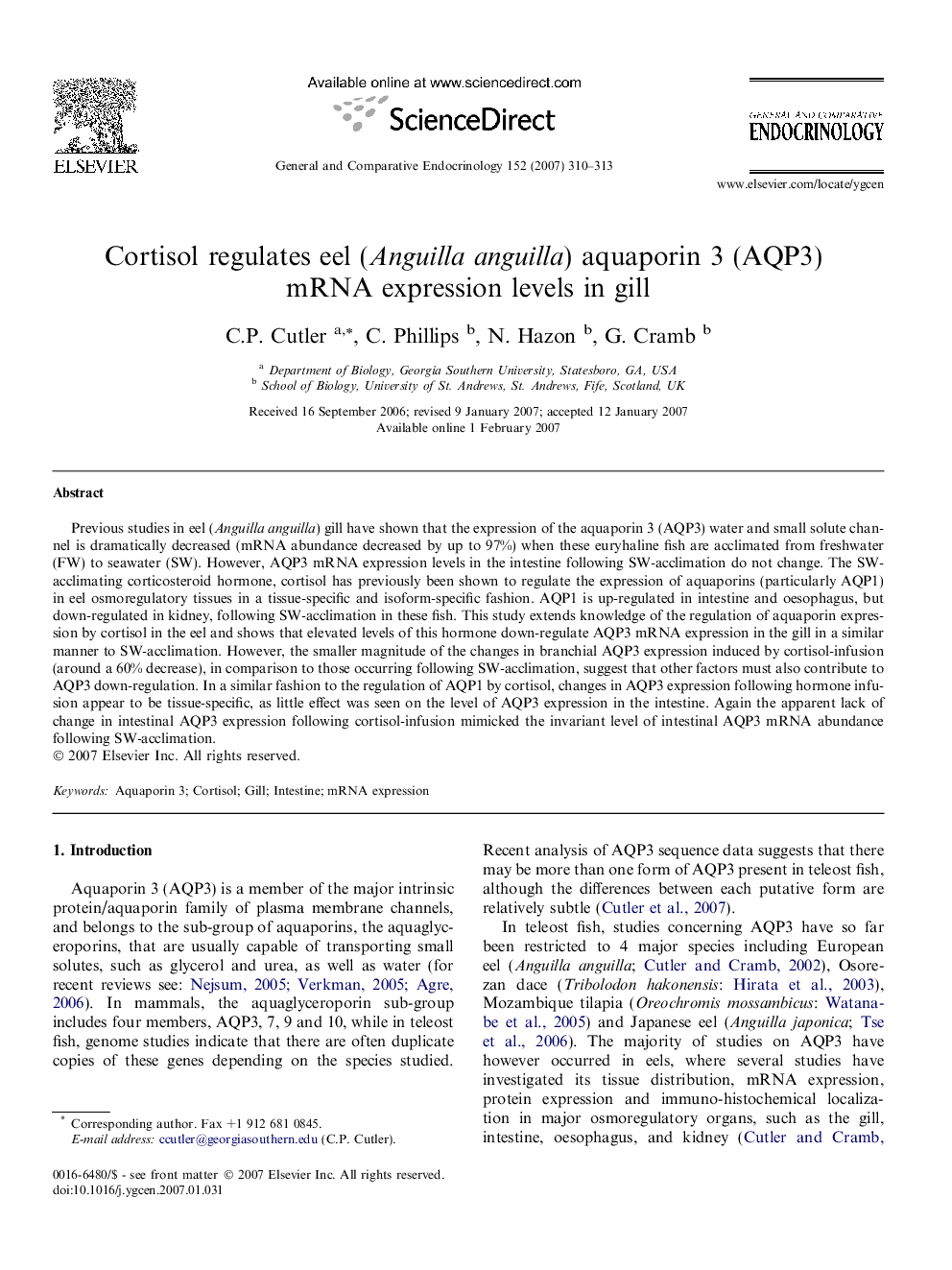| Article ID | Journal | Published Year | Pages | File Type |
|---|---|---|---|---|
| 2801963 | General and Comparative Endocrinology | 2007 | 4 Pages |
Previous studies in eel (Anguilla anguilla) gill have shown that the expression of the aquaporin 3 (AQP3) water and small solute channel is dramatically decreased (mRNA abundance decreased by up to 97%) when these euryhaline fish are acclimated from freshwater (FW) to seawater (SW). However, AQP3 mRNA expression levels in the intestine following SW-acclimation do not change. The SW-acclimating corticosteroid hormone, cortisol has previously been shown to regulate the expression of aquaporins (particularly AQP1) in eel osmoregulatory tissues in a tissue-specific and isoform-specific fashion. AQP1 is up-regulated in intestine and oesophagus, but down-regulated in kidney, following SW-acclimation in these fish. This study extends knowledge of the regulation of aquaporin expression by cortisol in the eel and shows that elevated levels of this hormone down-regulate AQP3 mRNA expression in the gill in a similar manner to SW-acclimation. However, the smaller magnitude of the changes in branchial AQP3 expression induced by cortisol-infusion (around a 60% decrease), in comparison to those occurring following SW-acclimation, suggest that other factors must also contribute to AQP3 down-regulation. In a similar fashion to the regulation of AQP1 by cortisol, changes in AQP3 expression following hormone infusion appear to be tissue-specific, as little effect was seen on the level of AQP3 expression in the intestine. Again the apparent lack of change in intestinal AQP3 expression following cortisol-infusion mimicked the invariant level of intestinal AQP3 mRNA abundance following SW-acclimation.
